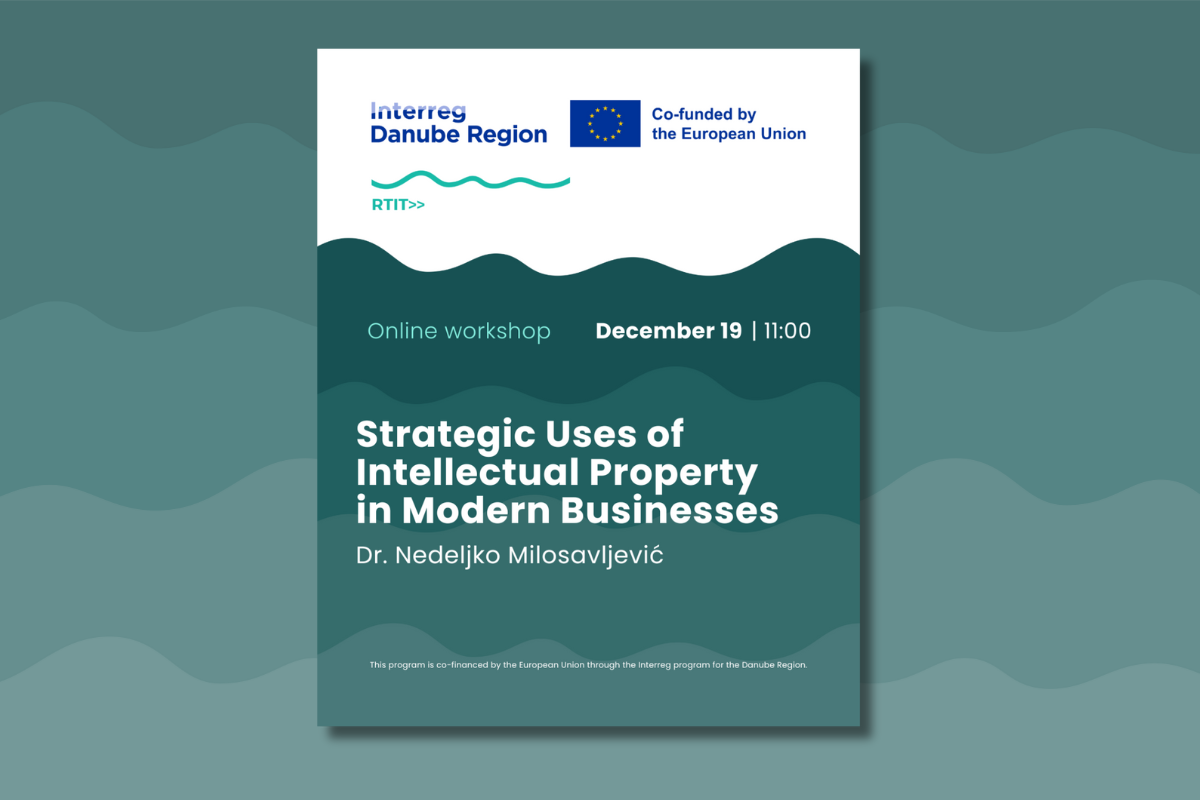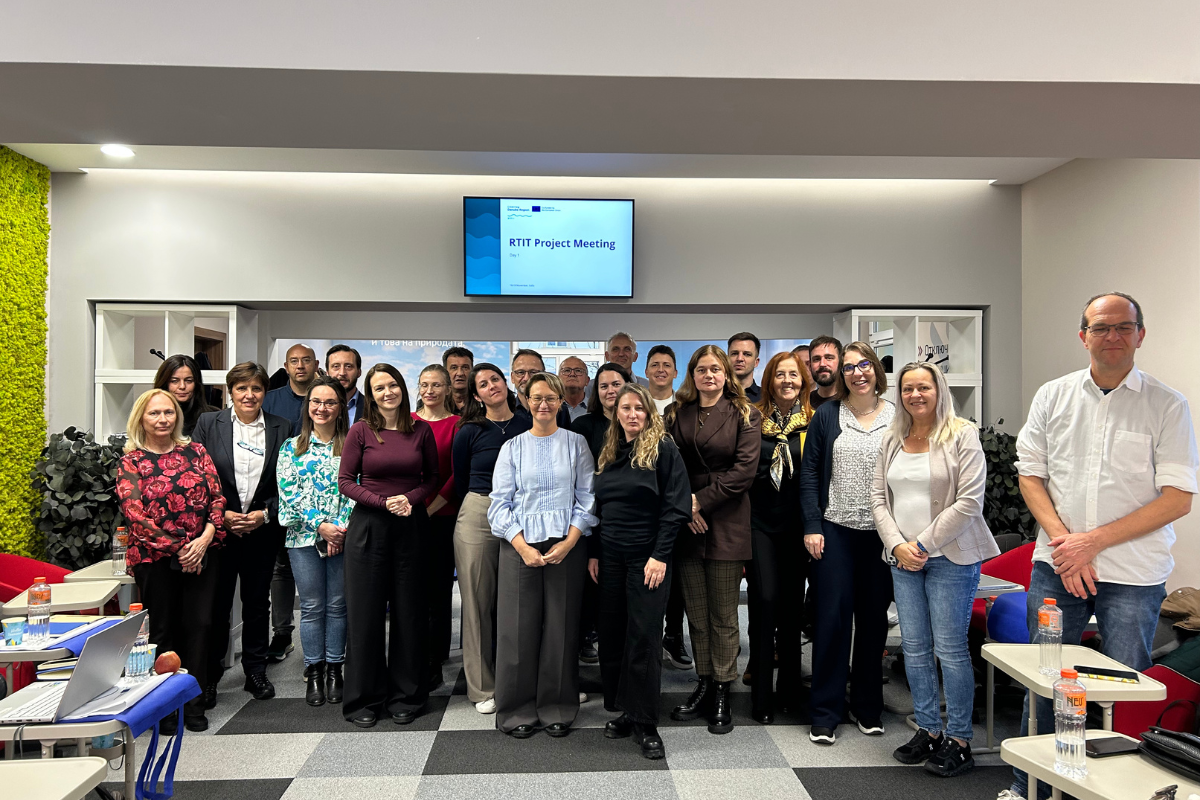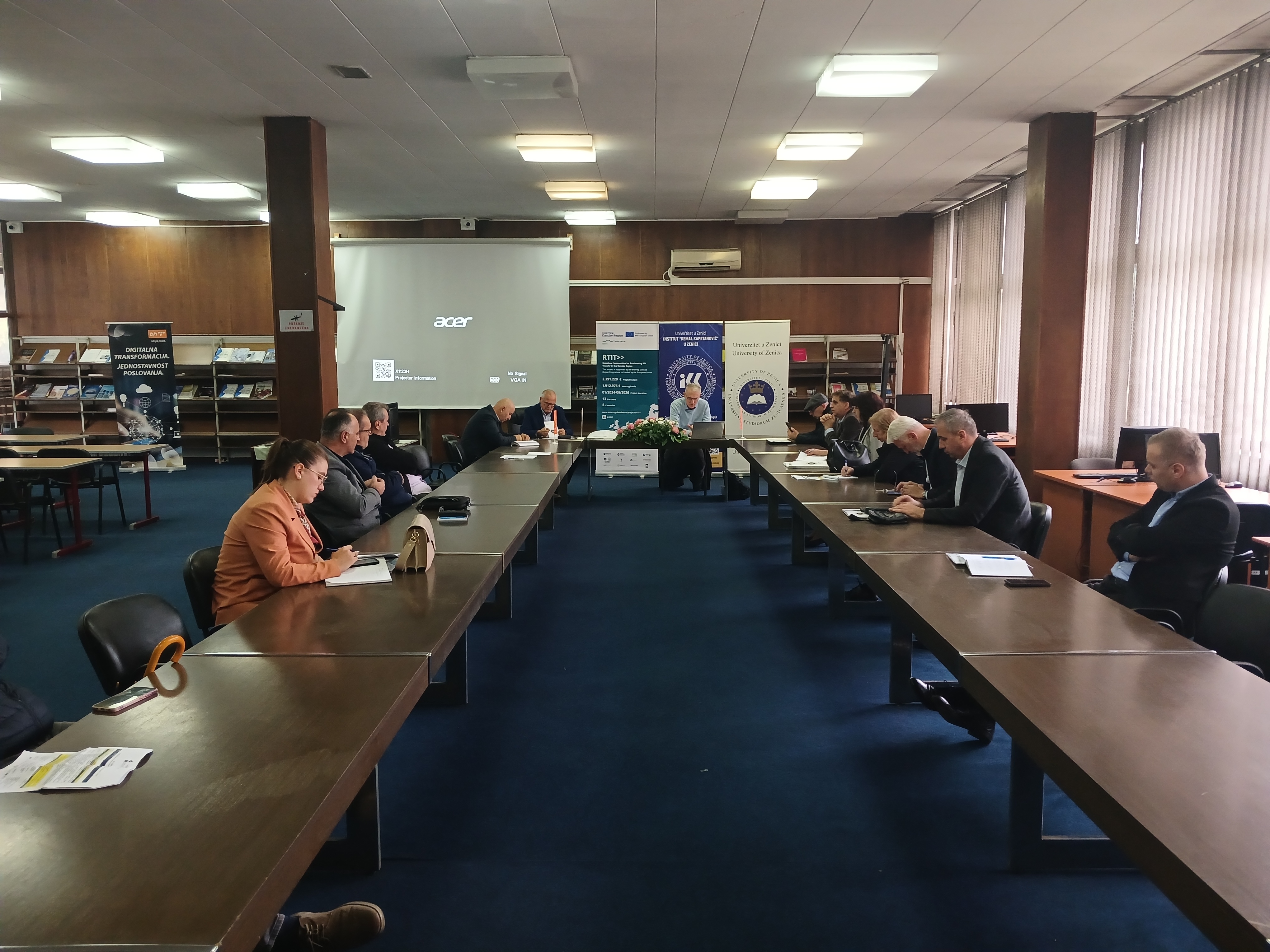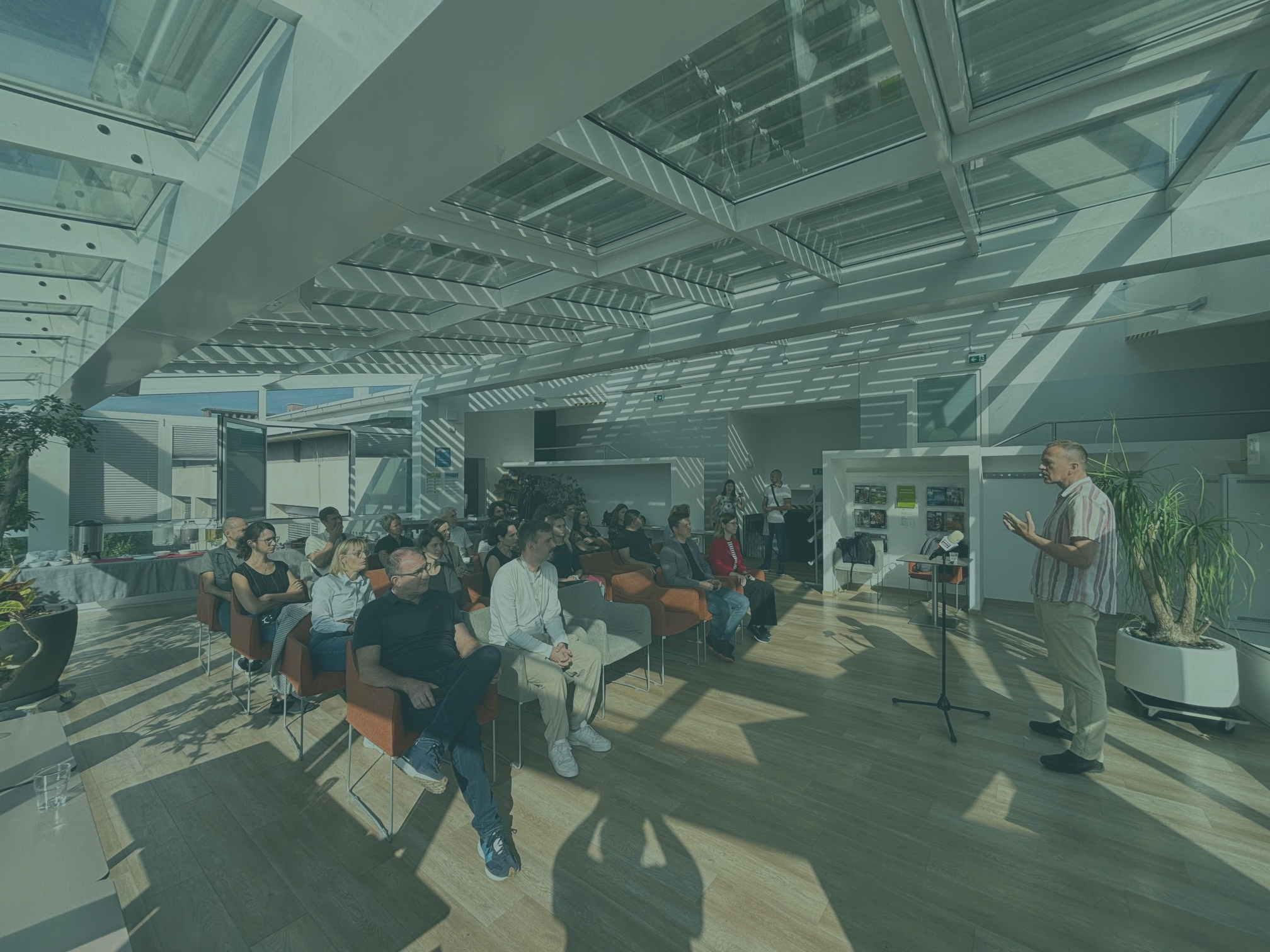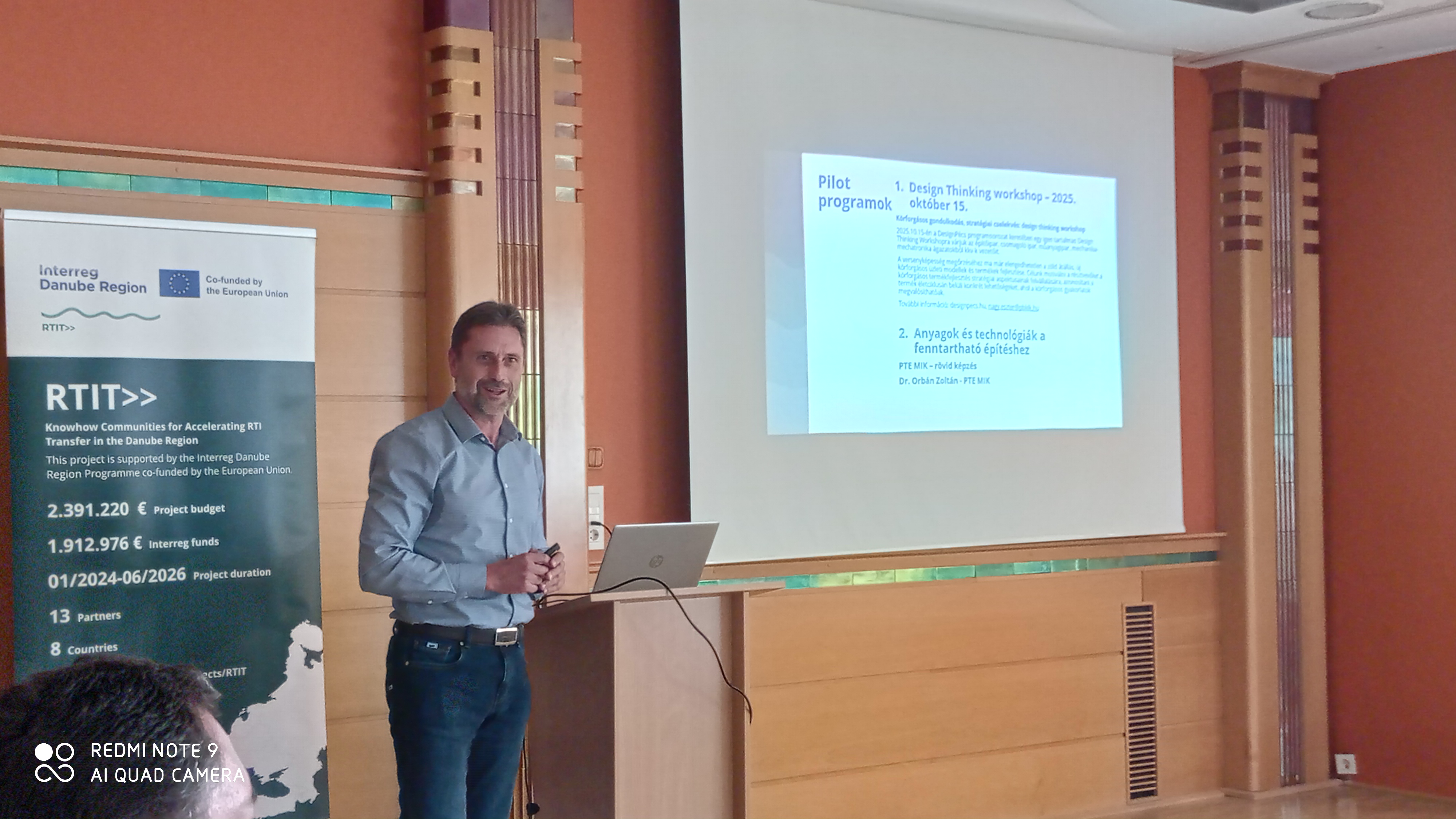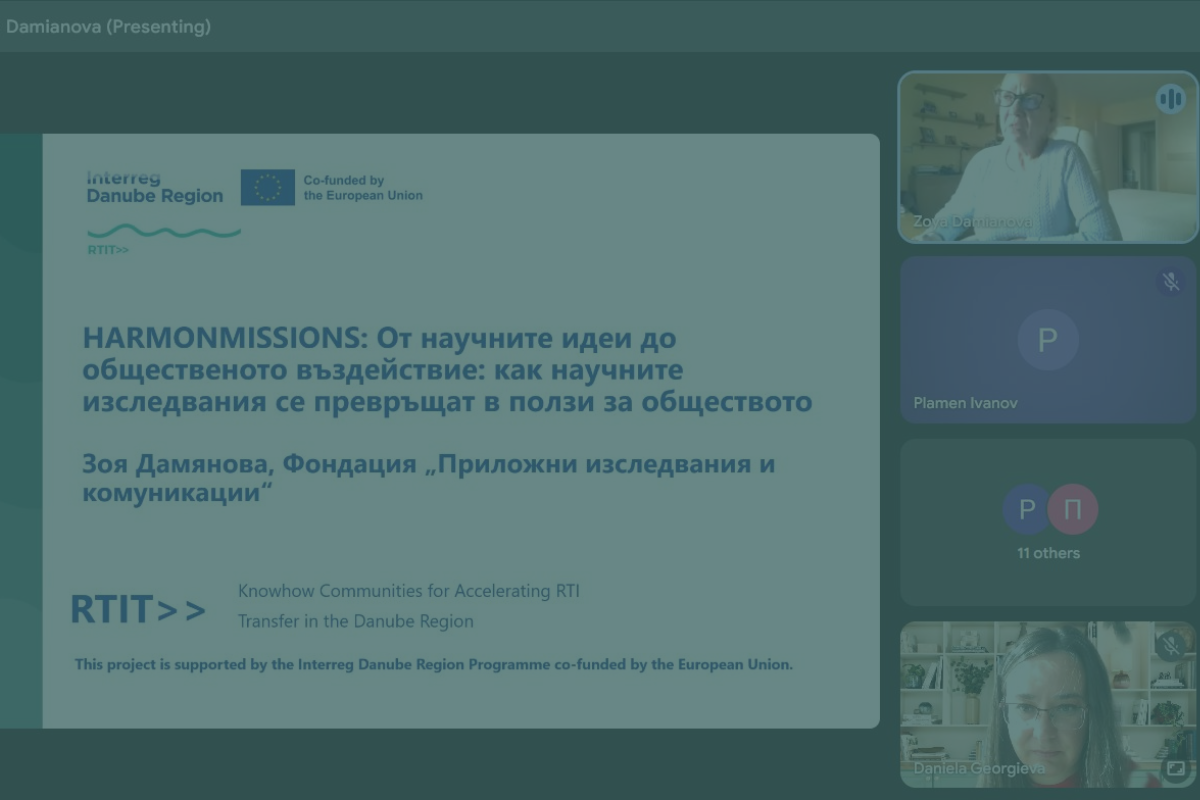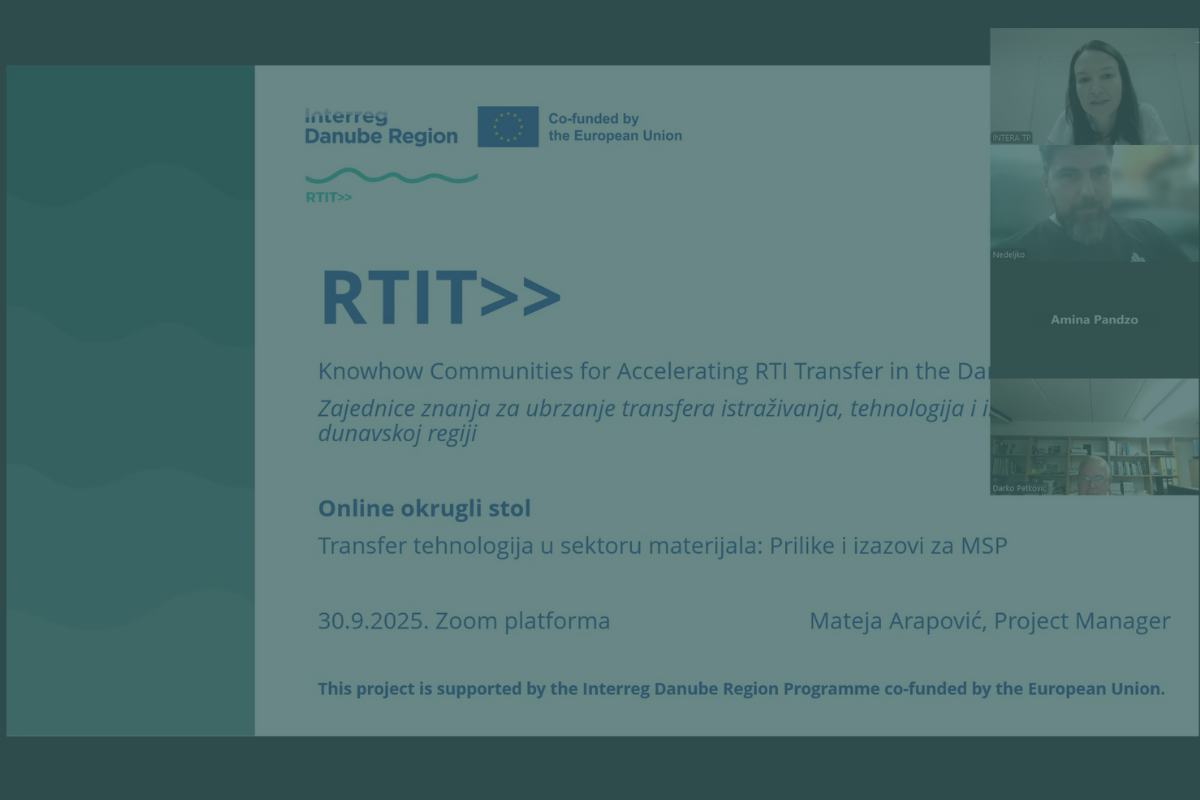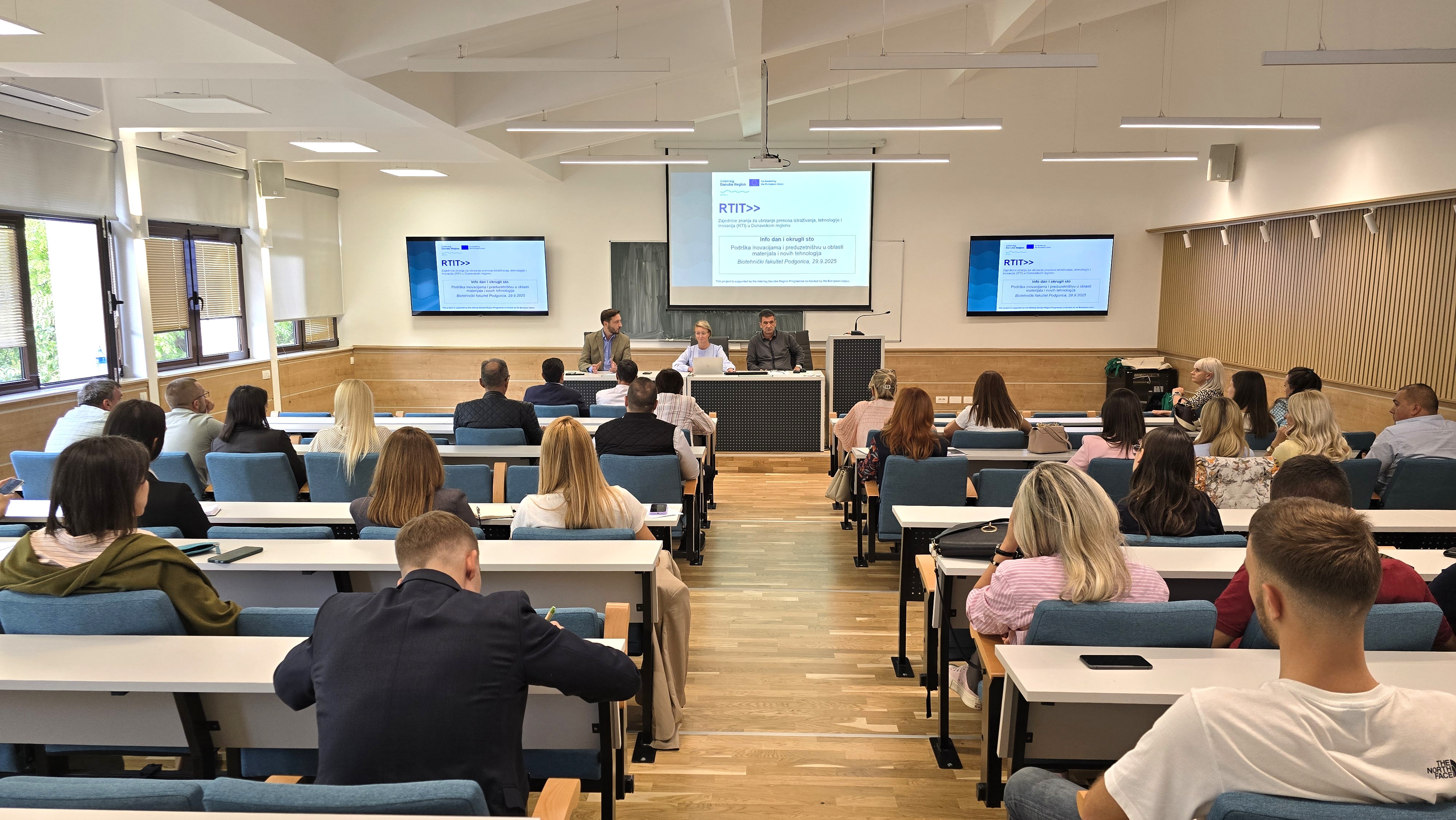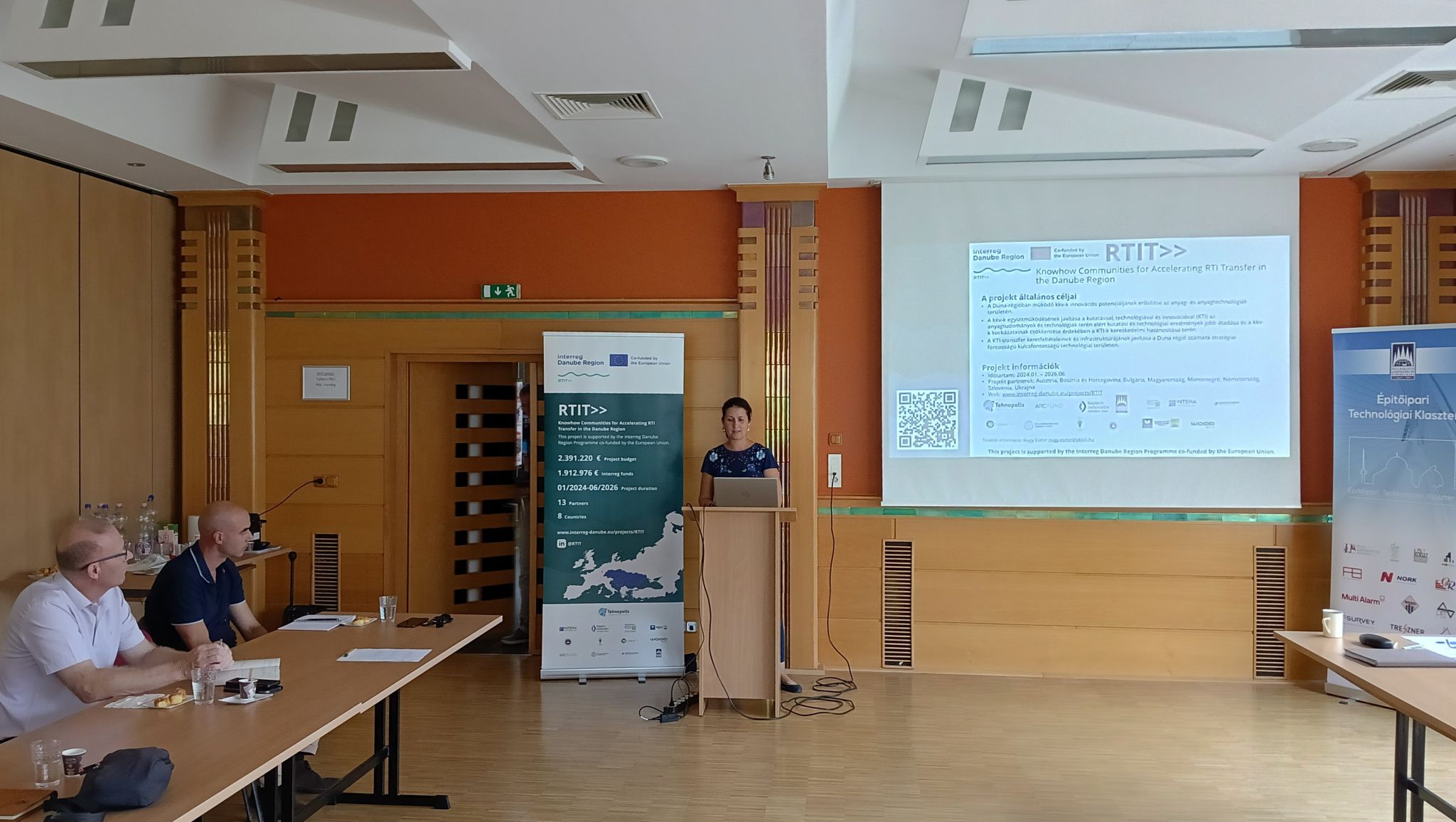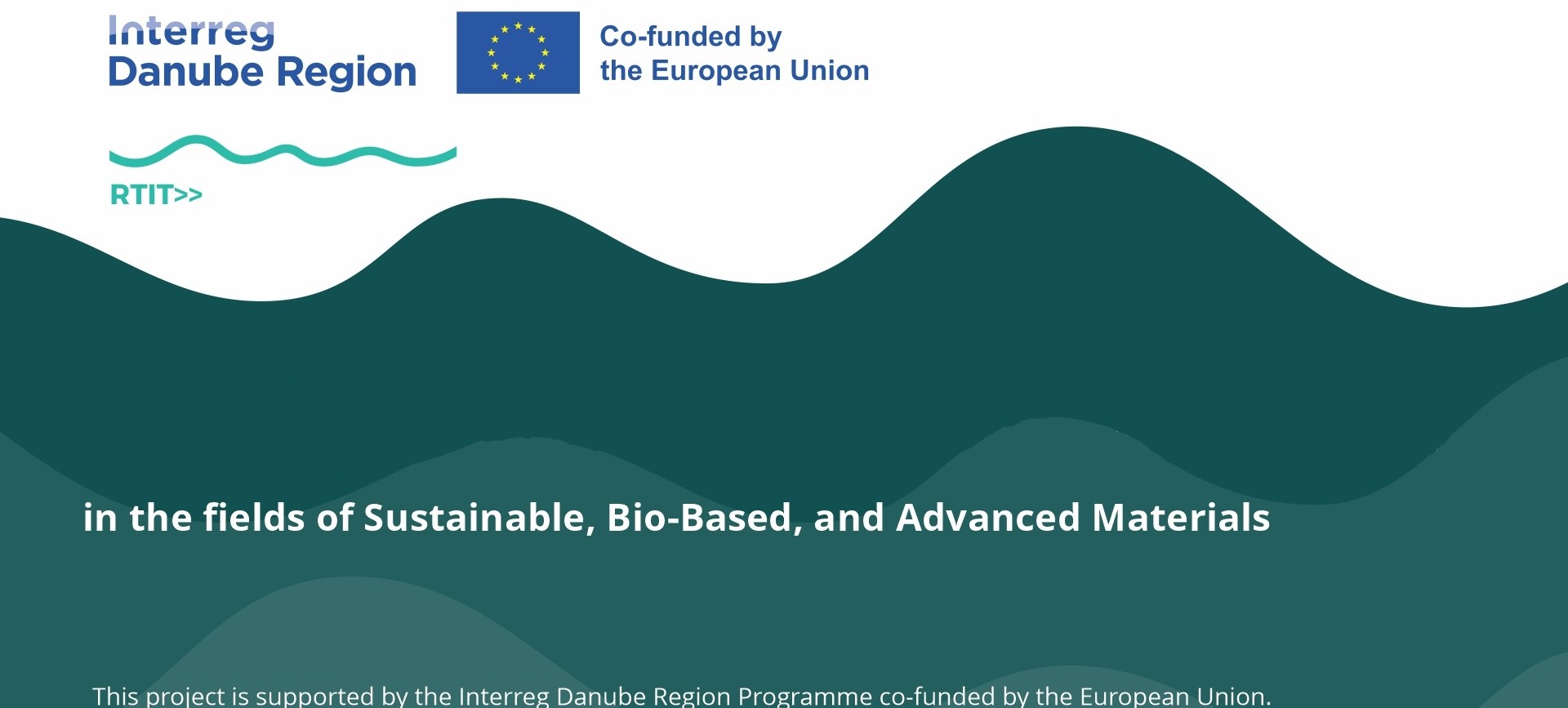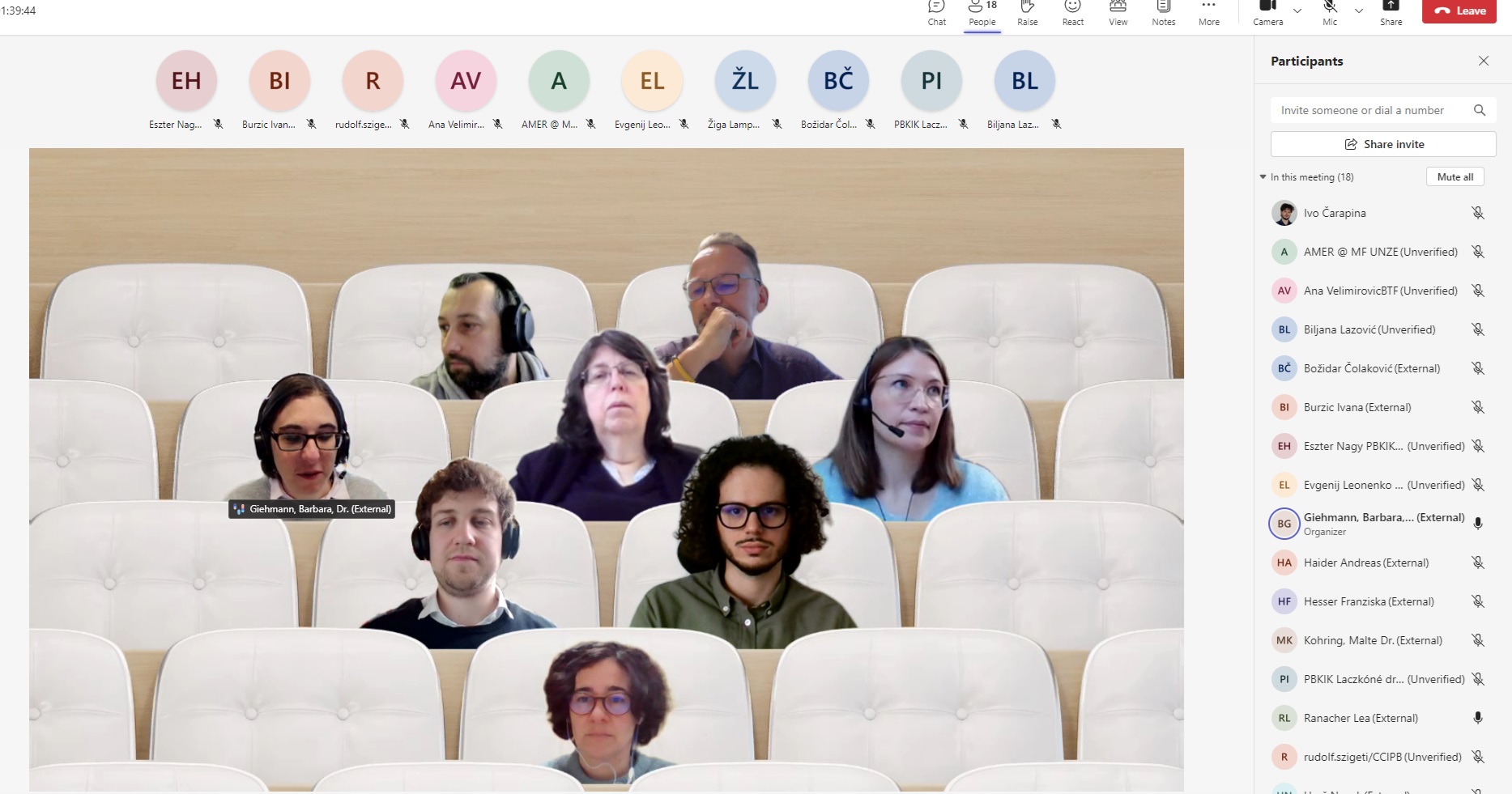
Educational online workshop
The new round of RTIT online lectures, within the educational workshop of thematic groups for members of project's consortium, took place on December 11, 2024.
The purpose of the lectures is to enhance capacities of project partners and teach them what is important in thematic areas. This workshop covered all three thematic groups: Sustainable, Biobased and Advanced materials.
The first lecture was presented by dr. Monika Voigt on the topic Can bioplastics be the key for more sustainable materials?
Bioplastics offer a promising alternative to conventional plastics, as they are made from renewable raw material. In this talk, different bioplastic materials were explained, since not all are biodegradable. They help to reduce CO2 emissions and promote the circular economy. A selection of these materials can even have mechanical properties comparable to synthetic polymers. However, bioplastics face challenges such as limited stability, high production costs and a lack of market acceptance. Despite these obstacles, they offer enormous potential for a sustainable future, as they can be used in medicine and the packaging industry.
The speaker dr. Voigt holds a PhD degree in polymer physics and had worked in research and development since the 1990s for more than 30 years. Her speciality topics are polymer physics, organic electronics and nanotechnology. Since 2023, she joined the Bayern Innovativ team and is project manager for the textile network and other interfaces as plastics or car interieur.
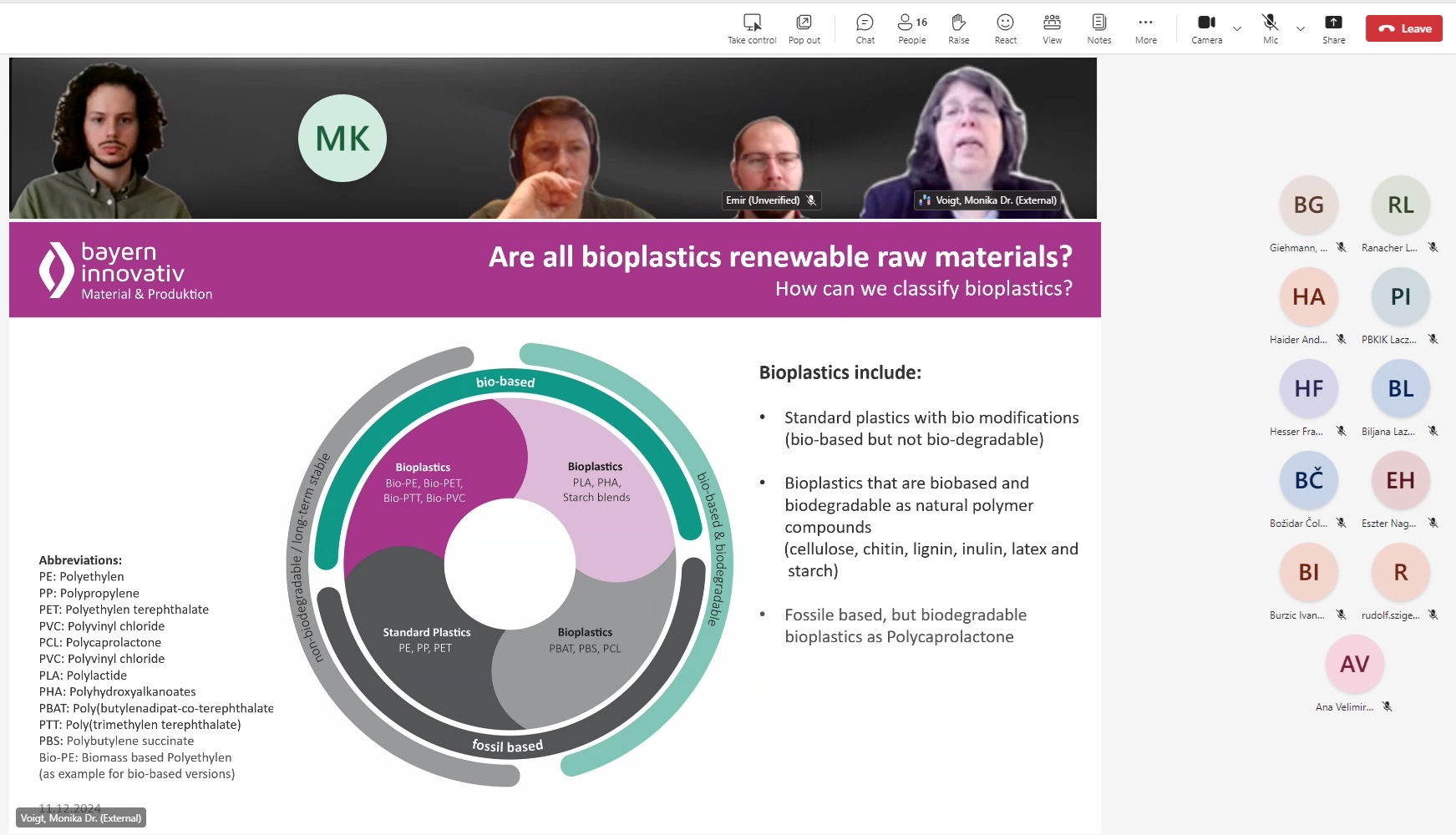
The second lecture “Sustainable use of bio-based resources and stakeholder integration in value chain assessment” was held by dr. Franziska Hesser
Dr. Franziska Hesser is a leader of the research group Sustainable Innovation and Impact Assessment of Wood K plus, a research and technology organization in the field of forest-based resource utilization. She obtained her doctoral degree from BOKU - University of Natural Resources and Life Sciences, Vienna. Her research interests focus on sustainable use of bio-based resources and stakeholder integration in value chain assessment. Currently she is pursuing her habitation at BOKU University for the discipline Innovation Research and Technology Assessment. In her habitation framework, she generates the theoretical foundation of integrating Sustainability Assessment in collaborative Innovation processes/ R&D projects.
The following lecture was about Sustainable Electronics – Trends for Bavaria and beyond with speaker dr. Malte Kohring
Dr. Malte Kohring is working at Bayern Innovativ on the topics of semiconductors and scaling industrial data spaces. In his position as project manager, he is leading a working group about sustainable electronics in the semiconductor network Bavarian Chips Alliance. Since his research in semiconductor physics at the Friedrich-Alexander-Universität Erlangen-Nürnberg during his time as PhD, he is fascinated about complex technological topics.
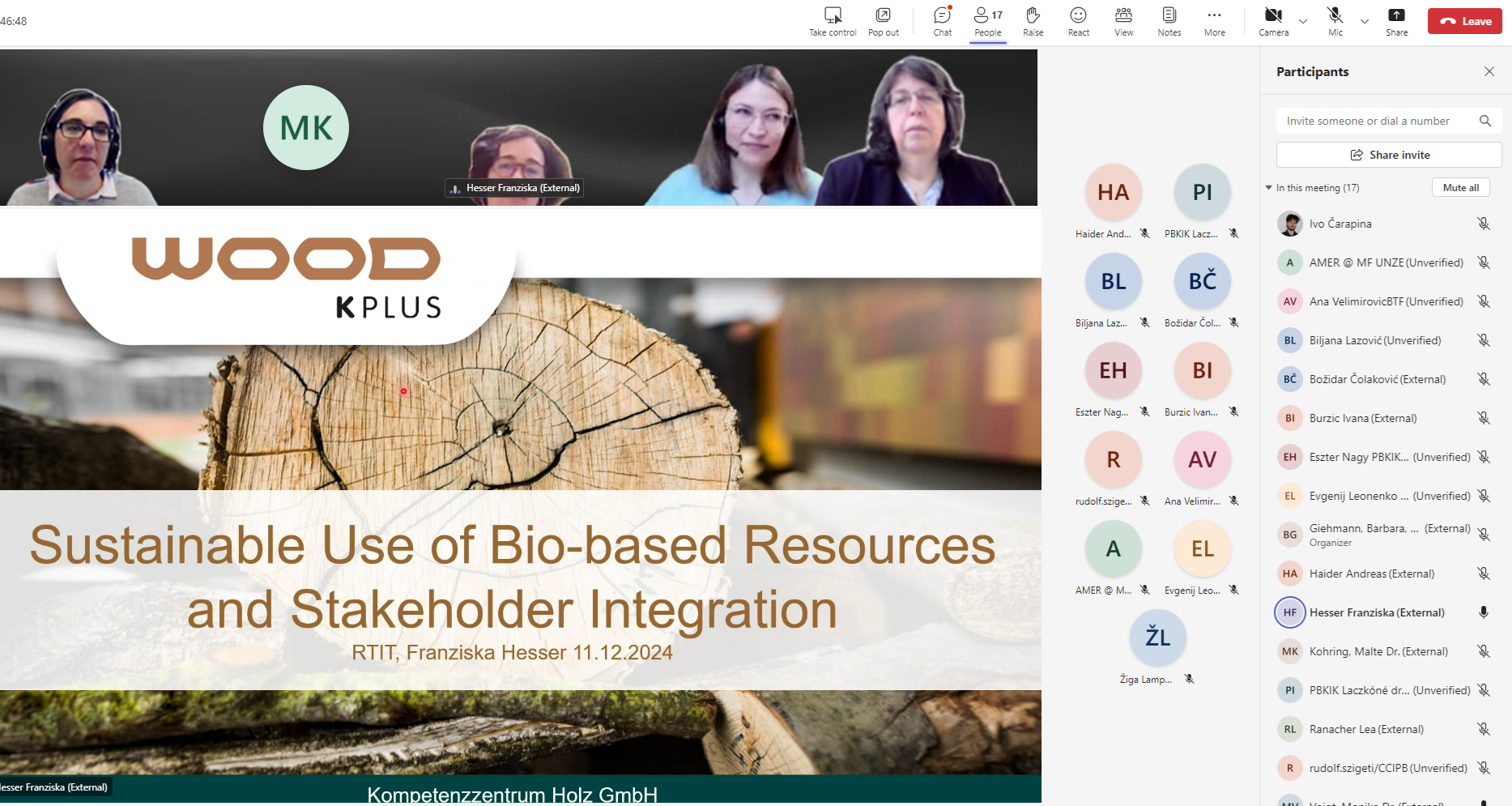
Final lecture was about: Prevention & Zero-Waste, elimination of single-use plastics – perspectives from the REMEDIES project, presented by assoc. prof. dr. Uroš Novak
The Project REMEDIES was about restoring, protecting and preserving the health of our oceans.
This year alone, over 200 million tons of plastic waste will be generated. About one-third of this waste will be mismanaged and end up in the natural environment, including the oceans. It is a multi-faceted challenge that we have to tackle on three different levels, which is why the Horizons Europe Mission Lighthouse project REMEDIES project is founded on three pillars. One of them is Prevention & Zero-Waste, which calls for the elimination of single-use plastics and the development of solutions that would replace plastic materials in our value chains, such as zero-waste cosmetics and completely biodegradable packaging for foods and beverages.
Assoc. prof. dr. Uroš Novak from Slovenian National Institute of Chemistry elaborated on the topic of Biodegradable polymers/biofilms (zero-waste technologies from chitin/chitosan and alginate, applicable in food and cosmetics packaging).
With over 15 years of experience in chemical engineering, natural biomaterials, and R&D, he heads the Research Group for Bioplastics, Bio-composites and Zero-Waste Technologies at the Department of Catalysis and Chemical Engineering at the NIC in Slovenia. He is the co-founder of two start-ups, the director of a non-profit NGO, the coordinator of the Horizons Europe Mission Lighthouse project REMEDIES, and the principal investigator for Horizon Europe projects. In 2023, he was invited to join the European Commission as an external expert.
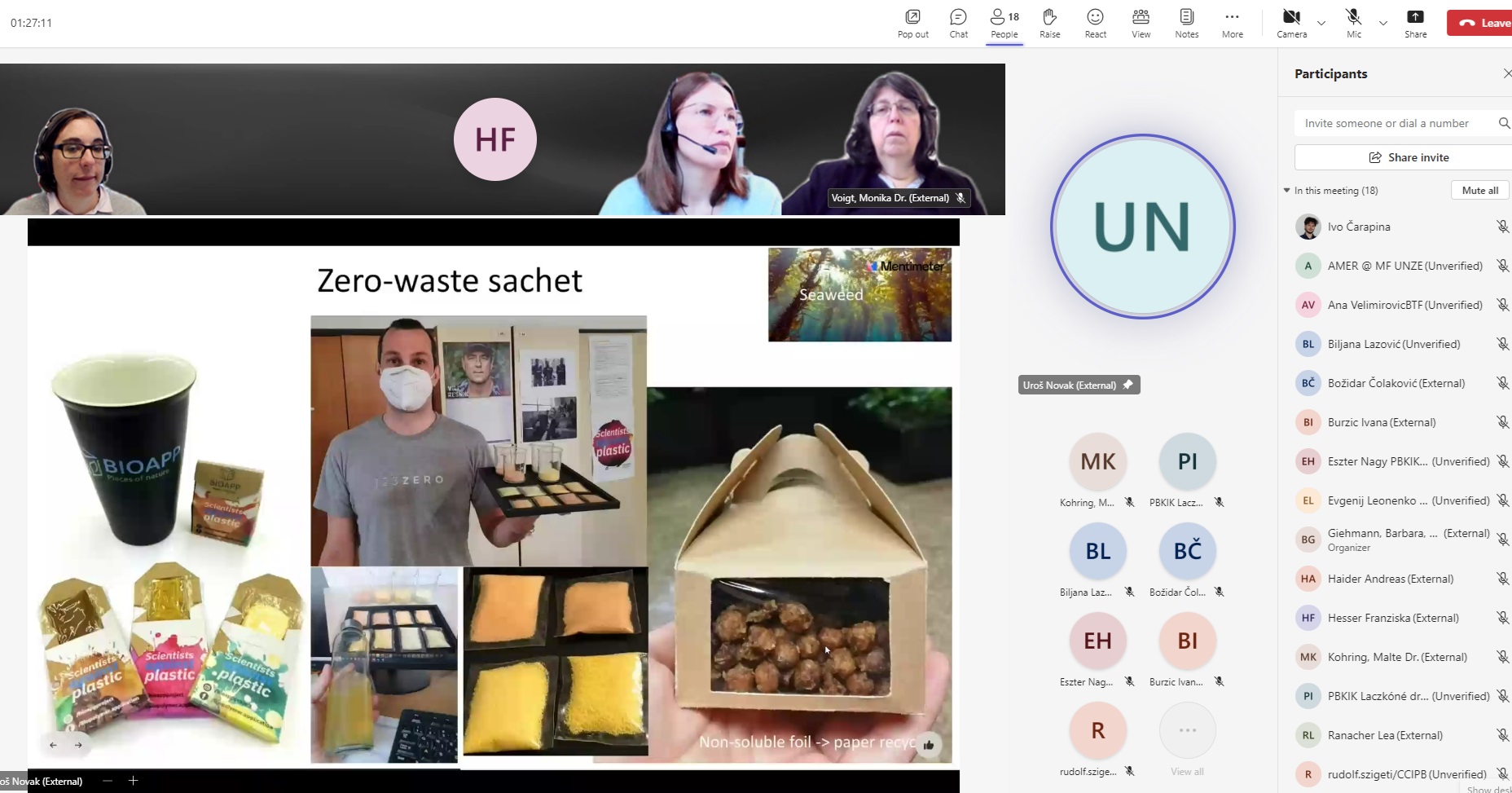
News & Events
Read the most recent updates and explore the upcoming events.

